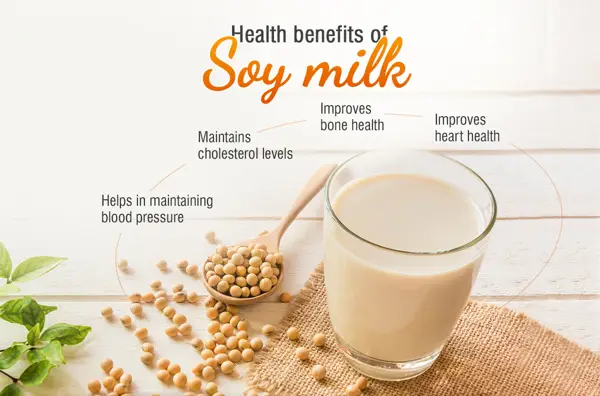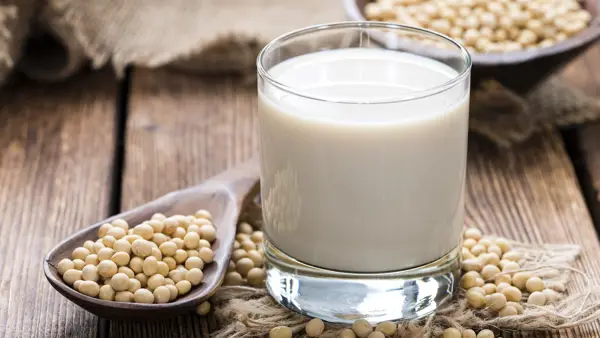Table of Contents
- What is Soy Milk?
- Soy Milk and Cholesterol
- Benefits of Soy Milk
- How to Incorporate Soy Milk into Your Diet
- Risks and Considerations
- Research on Soy Milk and Cholesterol
- Debunking the Myth
What is Soy Milk?
Soy milk is a plant-based beverage made from soybeans that is commonly used as a substitute for dairy milk. It is rich in protein, vitamins, and minerals.
Soy Milk and Cholesterol
Studies have shown that consuming soy milk may help lower cholesterol levels, particularly LDL (bad) cholesterol. The plant sterols in soy can block the absorption of cholesterol in the intestines, leading to lower levels in the bloodstream.
Benefits of Soy Milk
In addition to potentially reducing cholesterol levels, soy milk is also a good source of protein, calcium, and antioxidants. It may help improve heart health, promote bone density, and support overall well-being.
Soy milk is a popular alternative to cow's milk that offers numerous health benefits, including helping to reduce cholesterol levels. Here are some ways soy milk can help lower cholesterol:
- Low in saturated fat: Soy milk is naturally low in saturated fat, which can help lower LDL (bad) cholesterol levels in the blood.
- Rich in plant sterols: Soy milk contains plant sterols, which have been shown to reduce cholesterol absorption in the body.
- Contains heart-healthy omega-3 fatty acids: Some varieties of soy milk are fortified with omega-3 fatty acids, which can help lower triglyceride levels and improve overall heart health.
- Provides dietary fiber: Soy milk is a good source of dietary fiber, which can help lower cholesterol levels by binding to cholesterol in the digestive tract and preventing its absorption into the bloodstream.
Overall, incorporating soy milk into your diet can be a delicious and nutritious way to help reduce cholesterol levels and improve your heart health.

How to Incorporate Soy Milk into Your Diet
You can enjoy soy milk on its own, use it in smoothies, pour it over cereal, or incorporate it into your cooking and baking. It is a versatile and nutritious alternative to dairy milk.
Risks and Considerations
Some individuals may be allergic to soy or have difficulty digesting it. It is important to consult with a healthcare professional before making significant changes to your diet, especially if you have existing health conditions.
Research on Soy Milk and Cholesterol
Several scientific studies have explored the relationship between soy consumption and cholesterol levels. While results are promising, more research is needed to fully understand the mechanisms behind soy milk's potential cholesterol-lowering effects.
Debunking the Myth
There is a common misconception that soy products can increase estrogen levels in the body, particularly in men. However, this has been largely disproven by research, and moderate soy consumption is generally considered safe for most individuals.
Key Takeaways
- Soy milk may help lower cholesterol levels, particularly LDL cholesterol.
- Incorporating soy milk into your diet can provide a range of health benefits, including improved heart health and bone density.
- Consult with a healthcare professional before making significant dietary changes, especially if you have existing health conditions or allergies.
FAQ
Q: Can soy milk be consumed by individuals with lactose intolerance?
A: Yes, soy milk is lactose-free and can be a suitable alternative for individuals who are lactose intolerant.
Q: Is soy milk safe for children?
A: Soy milk can be included in children's diets as part of a balanced and varied eating plan. However, it is advisable to consult with a pediatrician or dietitian for personalized advice.



Recent Comments